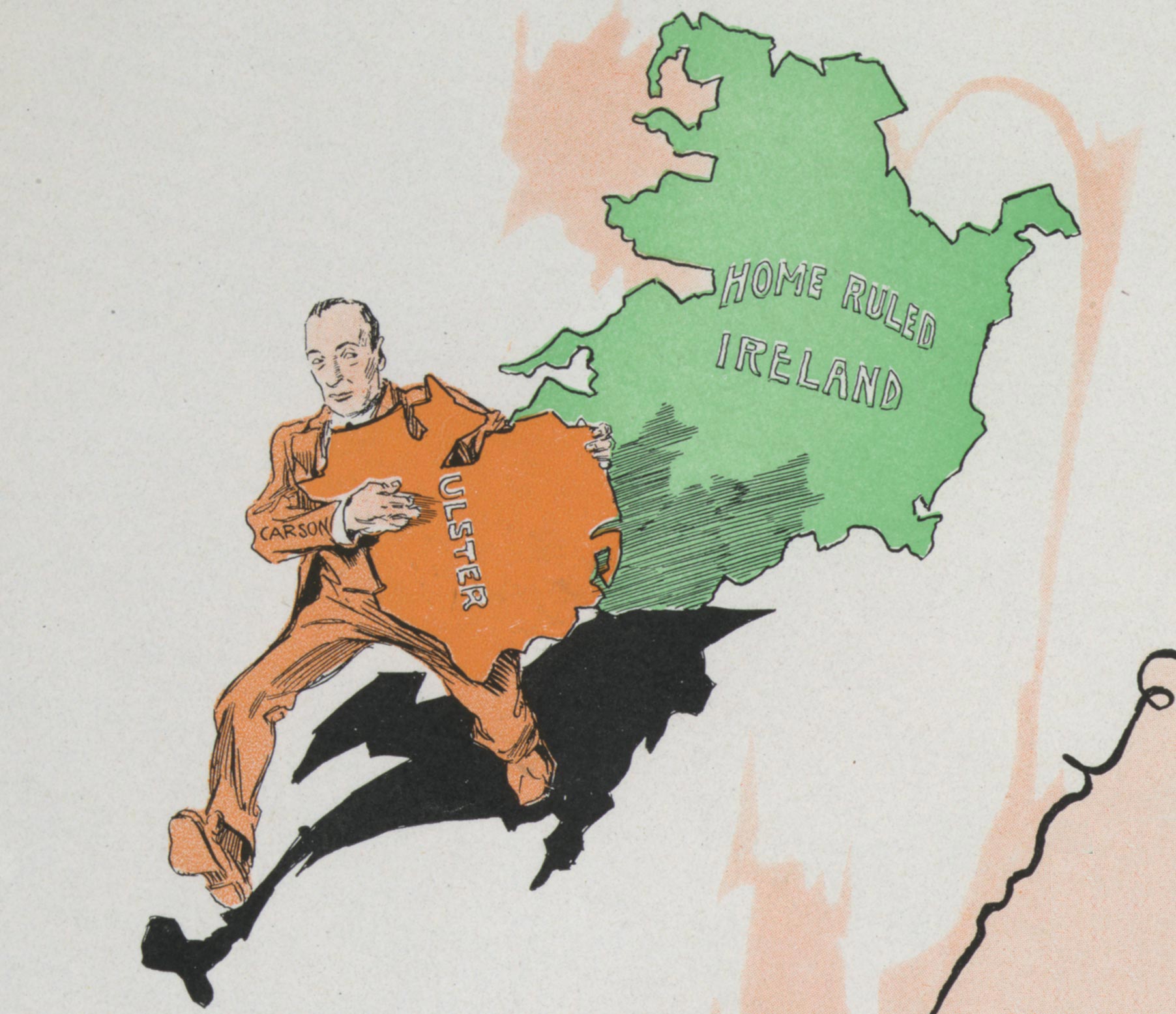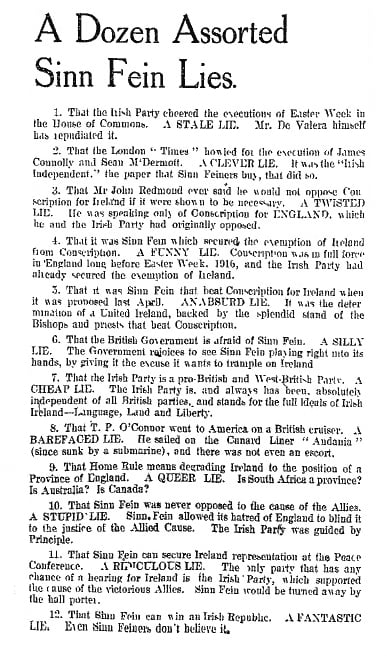Bishops intervene to save nationalist seats in Ulster
Dublin, 2 December 1918 - A voting pact has been agreed between Sinn Féin and the Irish Party in six Ulster constituencies for the forthcoming general election.
It follows a plea from the northern bishops, including Cardinal Logue, which urged a strategy designed to avoid three-cornered contests in constituencies where nationalist seats could be lost to unionism owing to a split vote between the Irish Party and Sinn Féin.
Irish party leader, John Dillon, supports the proposal and added that it was his view that the bishops’ plan for Ulster should be extended to the rest of Ireland to avoid ‘a number of bitter contests between nationalists, which...must inflict terrible, if not fatal, injury on the national cause’.
Despite John Dillon's support of the bishops' proposals, this strongly-worded ad appeared in the pro-IPP Freeman's Journal on 26 Nov 1918. Click to enlarge.
Sinn Féin have since held a convention in Dungannon in which they too have agreed to a carve up of constituencies whereby they would be allowed to face off against unionism in Derry City, South Fermanagh and North West Tyrone, while they would stand aside and let the Irish Party have a clear run in South Down, East Down and South Armagh.
Following the bishops’ plan means that Sinn Féin will now go back on a prior pledge to contest each and every constituency.
The arrangement also raises questions as to how it will be observed by the supporters of both parties. As the Irish Independent has suggested today: ‘A Sinn Feiner with very strong convictions may find it hard to take a prominent part in supporting Mr Dillon’s candidate, and vice versa.’
The voting pact between the nationalist parties has obvious implications for the electoral prospects of unionism and the reaction to the agreement has been strong and critical.
The intervention of the Ulster bishops has been denounced in the unionist Belfast Newsletter, which has said that it should ‘open the eyes of British politicians who think the Roman Catholic Church would be a conservative force in Irish politics, that it would restrain the extremists and support law and order’. The bishops had always put the interests of their church first, the Newsletter insisted and had, since the Reformation, worked ‘openly and secretly for the destruction of England...That is the real reason of the hostility of the Vatican to the Allies all through the war, and it also explains its opposition to conscription.’
[Editor's note: This is an article from Century Ireland, a fortnightly online newspaper, written from the perspective of a journalist 100 years ago, based on news reports of the time.]






















